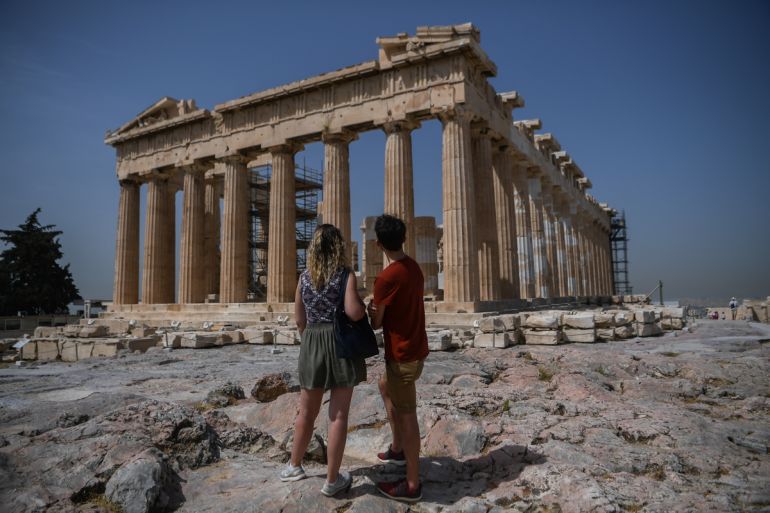Greece recovers hundreds of looted artefacts
Trove of 351 objects repatriated including a second-century bronze statue of Alexander the Great.

Greece said it has recovered hundreds of looted Neolithic to Byzantine artefacts including a second-century bronze statue of Alexander the Great from a notorious British antiquities dealer after a 17-year legal battle.
The fight to repatriate the trove of 351 objects began in 2006 with authorities investigating the eponymous company of Robin Symes in the country and abroad, Greece’s Culture Minister Lina Medoni said in a statement late on Friday.
Keep reading
list of 3 itemsTwenty years after the US invasion, where are Iraq’s antiquities?
Egypt repatriates looted ancient Green Coffin sarcophagus from US
The recovery came years after Italian and Swiss police in 2016 recovered a haul of archaeological artefacts stolen from Italy and stored by Symes, a key figure in the illegal antiquities trade with ties to Italian tomb raiders.
The Italian artefacts were found in a storage unit at the Geneva Freeport but Greece’s culture ministry did not specify if its recovery was linked to the Italian haul.
The extensive collection repatriated to Greece includes notable pieces such as a Neolithic-era statuette carved from white stone, dating back to the fourth millennium BCE.
Other significant finds include an Early Cycladic figurine dating to between 3200 and 2700 BCE, a damaged marble statue of an Archaic period kore from 550-500 BCE and an Archaic marble head of either a kore or a sphinx from 550-500 BCE.
Greece has been fighting to repatriate looted artefacts from museums and private collections around the world.
Three fragments of Athens’s Parthenon temple, kept by the Vatican for centuries, were returned to Greece in March in what Pope Francis has called a gesture of friendship.
The monument’s fragments are scattered throughout many renowned museums.
Earlier this year, reports also emerged that the Greek government and the British Museum are in advanced talks for the return of the Parthenon Marbles.
The ancient sculptures, also known as the Elgin Marbles, were taken from the Parthenon temple in Athens in the early 19th century by British diplomat Lord Elgin and have been held by the British Museum ever since.